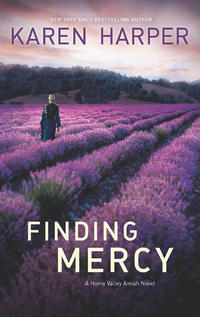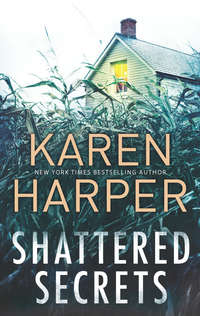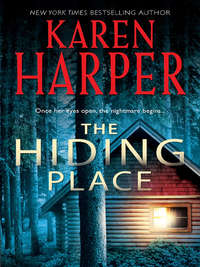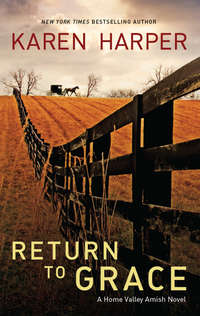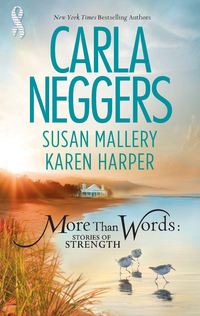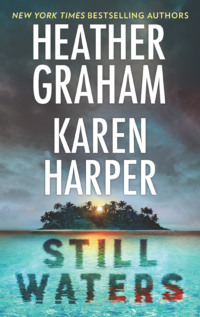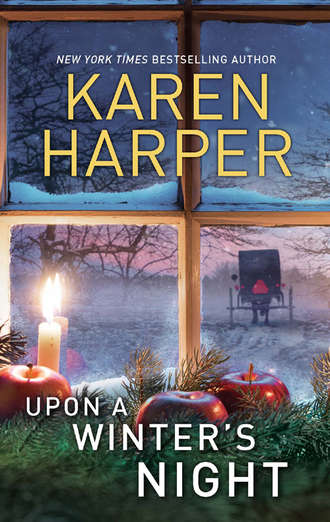
Полная версия
Upon A Winter's Night
Sandra raised an eyebrow at Josh. “Well, more of a mystery, then, though I’ve seen other situations where key information had been lost or even lied about. I can check the database archive from the Cleveland Plain Dealer online if it goes back that far, but is there a more local paper?”
Josh put in, “Homestead has a weekly paper but it’s only about nine years old. We’d need to go into Wooster in the next county to check on articles from the Daily Record.”
We’d need to go? Lydia thought. Was Josh going to help Sandra? But this was his busiest time for the Christmas animals. Or did he automatically think of himself and Sandra as a team?
“Is there any way you could go to Wooster with me now?” Sandra asked Lydia. “I saw a mileage sign a ways back that I think said thirtysomething. I can call ahead to check on the paper’s closing time.”
Lydia’s head was spinning. Go in that little red car right now when her parents would think she was working over here?
“I came to work with Josh’s animals so—”
“I can take care of them,” he said. “I know how much this means to you and how much you’ve meant to the animals and me.”
Lydia’s gaze met and locked with his for a moment, but it seemed a long time. Sandra cleared her throat. “Let’s do it,” Lydia heard herself say. “I can’t thank both of you enough for your help.”
“Besides, we need to get to know each other better, since we’re going to work together,” Sandra said, bobbing up from the sofa. “Who knows? Maybe their archives are online.”
“Don’t bet on it,” Josh said.
She got a flat, little thing out of her purse, flipped it open and started stroking the small screen. “I’ll just check the closing time of the Wooster Daily Record offices or else get their number and call them. And thirty-some miles means you can talk about your genealogy project en route and about an Amish Christmas coming back.”
“You’ll be surprised how complicated my problem is compared to how simple our Christmas is—both of them,” Lydia told her as she and Josh stood, too. She wished she’d dressed better than her barn clothes but that wouldn’t stop her from going to Wooster. She was too eager to get started on finding out who she really was—and who this Sandra really was, especially what she meant to Josh.
* * *
By the time they pulled up in front of the Daily Record newspaper office in Wooster, the county seat for the next county, Lydia had talked a lot but learned a lot. One thing, though she hated to admit it, was that she liked Sandra Myerson. She seemed honest and straightforward, as Josh had said, a go-getter who knew what she wanted from life, and Lydia couldn’t help but admire that. Sadly, the woman did not like animals except cats, but surely there were worse flaws in human beings. At least, Lydia thought, that probably meant Sandra and Josh were not meant for each other, except for the fact Sandra had carried on about what a great, genuine guy he was.
Dusk was descending as they hurried into the Daily Record office and told the curly haired woman at the reception counter what they hoped to find. She didn’t blink an eye that the two of them looked so different, but Wayne County had plenty of Amish, too.
“Okay,” the receptionist said when she’d heard their inquiry, “a double death, car hits buggy. That or a court case means a clip should have been kept, though only events from the last ten years are stored in our computer system. From the time period you want, our clips are not in a database but should be in an envelope filed in the morgue.”
“The morgue?” Lydia said.
“Just our slang. We don’t have a librarian anymore, but some of our veteran editors know how to find stuff in the morgue—it’s kind of like a library. Let me see if someone can help you, but several have gone home already.”
They waited about five minutes until a plump, sixty-something woman named Monica Jordan came out to help them. They wrote out their information for her and sat down to wait again.
“I’ve done research in the States and Europe,” Sandra told her in a quiet voice. “It’s sometimes just like this—fill out forms and wait, but then—voilà!—some hidden gem falls right in your lap.
“So what’s this about two Amish Christmases?” she asked. “Josh only told me about one, December 25, a family day, keep-it-simple, sometimes homemade gifts, a traditional meal. It sounds like the rest of us except for the lack of razzle-dazzle and ooh-la-la, no over-the-top decorations and Santa stuff we moderns enjoy.”
“For sure no Santa stuff.”
“But how about decorated trees? I passed a Christmas tree farm near Josh’s.”
“That’s the Stark tree farm on the outskirts of Homestead, but the Amish don’t buy those. The moderns do, though, and the farm ships truckloads of trees to local cities to be sold on rented lots. That’s Ohio Senator Bess Stark’s family business, though she’s almost never here, and her son oversees it.”
“Boy, that’s a good one. Snarky Stark’s family sells Christmas trees.”
Lydia didn’t know what snarky meant but she didn’t want to ask. Sandra used all kinds of strange words like voilà.
“So, go on about Christmas,” Sandra prompted.
“The truth is that many Amish want to ignore the December 25 celebration, since the world has commercialized it so much. We struggle to ignore outside temptation and keep the day focused on our faith. But as for the second so-called Amish Christmas, we just call it Old Christmas because it went with the historical religious calendar from centuries ago. We close our stores on that day, too. It’s January 6, called Epiphany, the traditional day of the arrival of the wise men from the East—probably the first non-Jews to see the baby Jesus, and that shows anyone can approach Him.”
“So you celebrate January 6, too, while the rest of America does not? I don’t think that’s very well-known. Great, I can use that in my dissertation on immigrant holidays. The modern-day Amish are against commercialized Christmas, so they cling to another day when the wise men brought their gifts to the manger.”
“But it’s a simple day, too, sometimes spent with extended family. You know, that’s one of the things I might have missed, being adopted. I have a few cousins on my father’s side, but they don’t live within buggy distance, so I see them mostly at weddings and funerals. Mother’s family is from Pennsylvania, so the same there. But maybe if I learn who my biological parents were, there will be new cousins, even some in buggy range.”
Sandra leaned closer and put her hand on Lydia’s arm. “Don’t dream too big. They might not even find the old article of the accident. Then, if you still don’t want to involve your adoptive parents, we’d have to start asking around on the sly.”
But her voice trailed off as Monica Jordan came back out to the front desk with a manila folder in her hand. “Ladies,” she said, “I think I’ve found what you’re looking for.”
They rose. Lydia’s heartbeat kicked up. They approached the counter where Ms. Jordan spread open the folder, filled with old newspaper articles that looked more black-and-yellow than black-and-white. And on top lay one with a photo of a crumpled buggy in a ditch and a dead horse.
Lydia sucked in a sob. Any hurt or killed animal got to her, even when the local men went hunting. But this—her parents’ death scene...
“Could we look at this over there?” Sandra asked the woman. “We’ll be very careful with it.”
Evidently noting Lydia’s distress, Monica said, “It’s almost closing time, but I can photocopy it for you.”
Lydia carried the warm copy of the article outside into the thickening dark. She cradled it to her cape; it seemed to burn her hand. When they got back in Sandra’s car, the overhead light popped on. Lydia was suddenly afraid to look at the picture again, though it didn’t show dead bodies. Sandra turned on the ignition and the heater, but it blew out cold air at first.
“Can you read it out loud or should I?” Sandra asked.
“I can. I want to—have wanted to for a long time,” Lydia whispered. Then, despite feeling chilled from within, she read aloud, “‘Young Amish Couple Die in Buggy Accident. Driver Cited.’”
Lydia frowned. “Driver cited?” she muttered as Sandra leaned closer to look at the photo. The article was trembling in Lydia’s hand.
“That means the driver of the car. Go on, and I’ll make notes,” she said, fumbling in her big purse for a pad and pen.
Her voice shaking, Lydia went on.
“A young Amish couple from the Charm, Ohio area, David Brand, age 24, and Lena Hostetler Brand, age 23...”
Her voice caught. David and Lena, David and Lena... Their names were David and Lena... And her mother’s people were Hostetlers. She knew of some in this area, though not in the Homestead Amish church.
She cleared her throat, blinked back tears and continued.
“...were pronounced dead at the scene after a vehicle carrying four tourists from Parma, Ohio, struck their buggy at approximately 9:00 p.m. on Wednesday.
Clinton MacKenney, the Holmes County sheriff at the scene, theorized that skid marks indicate the vehicle, a station wagon, careened over the hill behind the buggy at a speed of at least fifty miles per hour, could not stop in time and hit the buggy from the rear. Marvin Lowe, 65, was cited for driving over the speed limit with reckless abandon. Further charges of double manslaughter may be forthcoming.
Lowe made no statement but said he will soon have a lawyer. His vehicle sustained minor damage...
“Minor damage,” Lydia whispered, blinking back tears. “It isn’t fair. So perhaps there was a trial.”
“But this gives us all we need to know to start searching.”
“And there’s no way my mother could still be alive,” Lydia admitted with a sigh. She’d told Sandra about the note. “Talk about getting my hopes up...”
Sandra shook her head. “So sad. A tragedy that could have been avoided. Do you want me to read the rest of it?”
“Okay but I’m fine. Well, not really, but I want to find out no matter what.”
Sandra took up where she’d left off.
“Since it was nearly four hours after dark, the Brand buggy had two lanterns on the back, both surprisingly found still lighted in the ditch when medics and the sheriff arrived. The horse was also killed. The couple had wed barely a year ago and leave one infant daughter who is staying with relatives. David Brand was a tree cutter with a company in Amity.”
“A tree cutter,” Lydia repeated. “I wish it said if they left behind other family—siblings, cousins.”
“I can search for their obits later, and those might tell.”
“Maybe. The Amish come from far and wide for funerals. More likely their obituaries appeared in The Budget, the national Amish newspaper. But I’m sure no one keeps clippings from that in folders or databases.”
“I forget I’m dealing with an enclave culture here.”
Another word Lydia didn’t know but she got the idea.
“I just wonder,” Sandra said as she turned off the light on the car’s ceiling and backed out, “if the relatives you were staying with the night of the accident or thereafter are your adoptive parents or if there were others who took care of you at first. What’s the relationship between your adoptive father and your biological father?”
“I’m not sure. A cousin, not first cousin. Ach, our people value family, even extended family, and many know their roots way back to the few Amish families who migrated from Europe to escape persecution there. And here, I know next to nothing,” she added, blinking back tears again.
“But you know a lot more than a few minutes ago, and it gives me information to start digging. It’s obvious your real mother died in this accident,” she said, “but Victoria’s note gives us such an interesting twist we might still want to check it out.”
“Yes, I still do,” Lydia told her, stroking the old photo of the scene of the double murder—that’s what it was, murder! Nothing to do about that this late, of course, except try to forgive. But unlike what her daad and mamm wanted, after today, she could never forget. Like she’d heard Josh say once when he was talking about his time in the world, A little knowledge is a dangerous thing.
7
“Lydia, it’s so raw outside, and I’m afraid I’m getting a cold,” Mamm told her late Tuesday afternoon, the day after Lydia and Sandra had been to Wooster. She did, Lydia thought, sound nasal and had been blowing her nose, though sometimes she thought Mamm had private crying bouts and sounded like that, anyway.
“I know you’re heading for the animal barn,” Mamm said, “but could you take these four loaves of bread outside to Mattie Esh for the Stark funeral?”
Although Lydia had overheard that some local Amish women referred to her mother as “Sad Susan,” Mamm was also known in the community for her generous gifts of what most outsiders called Amish friendship bread. She gave loaves of it away for Christmas gifts and anytime the church had a special event. Even the local Englische knew to look for it in her plain brown wrappers at Amish benefits and yard sales.
But Mamm kept the starter yeast mix and recipe to herself. Lydia had once asked why, when the sharing of those things was part of the idea of friendship. Her mother had simply said that the bread alone was her gift to her people. But Lydia came to believe the cinnamon-crunchy sweet bread was Mamm’s way of trying to make up for a tart tongue and sour outlook on life. And Mamm’s sending anything to the Starks surprised Lydia, though Mamm often contributed bread to local funerals.
Pointing out the window, Mamm went on, “Mattie and Anna Kauffman are buggying up the lane right now, see? Since I’m on the church list to donate bread for local events, I could hardly say no when the Starks, living next door all these years, have a family funeral—which I wish you were not attending, you and Josh.”
“Mamm, we’re honored to represent the Amish community. Sure, I’ll take the bread out to them, then just head over to Josh’s. I’m going to walk through the woods because Flower got chilled waiting for me in the store barn all day.”
“Flower! You and your animals. Here, the bread’s in this sack.”
“And smells wonderful, as usual!” Lydia lifted the sack and gave her a quick kiss on the cheek. She had tried very hard since yesterday to be affectionate toward both her parents. After all, they’d taken her in after the tragic death of her birth parents. They had treated her as their own when she’d lost David and Lena Brand...David and Lena... She loved to recite their names to herself. Lydia wondered what else Sandra might have found, cross-checking other sources, as she’d put it.
In the mudroom, she quickly donned her bonnet and warmest cape—the one she’d placed over poor Victoria Keller—stuffed her feet into boots and tied a woolen scarf around her neck. She yanked her gloves on, picked up the sack of fragrant bread and hurried outside. Lacy snowflakes sifted down, but they didn’t seem to be piling up fast. The two women, Mattie Esh, the bishop’s wife, and one of her good friends, were in a large family buggy.
“Hello, Mrs. Esh and Mrs. Kauffman,” Lydia greeted them. As she lifted the sack to Mrs. Kauffman, she saw the backseats were full of baskets and bags. “Oh, my, what a lot of food!” she blurted.
Mrs. Esh told her, “The church really wanted a special outreach to the Starks to show our love and concern for them.”
“And not because Connor is mayor now,” Anna Kauffman added with a sharp sniff. “Nor because Bess Stark has worldly political power. But we want to extend the right hand of fellowship to those who seem trapped in the world’s ways. Speaking of hands, we could use an extra couple of strong ones to unload, sure we could. Lydia, can you ride along with us next door to help drop these things off? It won’t take long, and we’ll bring you back home.”
Though she was eager to head over to Josh’s, she told them, “Ya, of course, I’d be glad to help.” She climbed up in the buggy and held the sack of still-warm bread in her lap so she could fit on the second seat.
Mrs. Esh turned the buggy around, and they headed back down the lane. “How are Hannah’s twins, Mrs. Esh?” Lydia asked. Her daughter Hannah had gone to the world for a while to pursue a singing career, but had returned home, wed Amish and sang now only at their weddings.
“Big for their ages, and lungs strong like Hannah’s. They will be two strapping boys, Lord willing. You know, she sings to them all the time. Hannah’s little adopted four-year-old girl, Marlena, is a big help.”
Oh, ya, that’s right, Lydia thought. Hannah had more or less adopted Marlena when she married the widowed Seth Lantz, but Seth was the girl’s real father, so she’d never actually been orphaned. And Lydia just bet Hannah and Seth told their little girl all about her real mother and didn’t try to ignore or hide the truth.
“And how is your daughter Sarah doing?” Lydia asked Mrs. Kauffman. A noted Ohio artist, Sarah had been shunned for painting the faces of people she knew and for wedding an outsider. But Lydia knew the Kauffmans still saw her and her husband and their little daughter from time to time. What would happen when Mamm and Daad finally learned that their own daughter had defied them?
“Sarah’s doing good but should still stop painting faces for her work,” Mrs. Kauffman said, and Lydia realized that was that.
Soon they were buggying past the rows of Christmas trees the Starks sold this time of year. The big banner was up over the lane that led a short way to the barn where they bundled their yearly crop of firs and pines, the short-needled ones barely dusted with snow, others bowing their branches under its weight. Those who lived near the tree farm knew it was almost a year-round task to care for the trees. The seedlings were planted mid-April, and shearing and shaping went on through the hot months of June and mid-July. In the late autumn, skilled workers with rotary pruners trimmed the trees which went on sale late November and December. The familiar banner read, Stark Choose-and-Cut Christmas Tree Farm. Open Now to Christmas. Hay Rides, Cider, Cocoa Free.
More rows of trees, some tall, some growing for future years, sped past Lydia’s gaze. The Starks had twenty-five acres of trees, just the right size farm, she’d heard, for a family to run with only seasonal help. She had not been at the Stark house for years, not since Mamm had laid down the law about her visits there. The fragrant, crisp scents of blue spruce, Fraser fir, Scotch and white pine vied with the smell of the bread in her lap. The rows of trees wrapped around the slant of the hill on which the Stark mansion perched. When it was lighted at night, Lydia used to think the house was like its own star atop a giant tree.
The horse team pulled the big buggy easily up the lane, since it wasn’t slippery. Years ago, the Starks had put some sort of heating pipes under the pavement, so the snow and ice melted off. It sure saved a lot of shoveling. Who knew what wonders were to be found in their house itself after all these years.
At the side door, they unloaded their goods, met not by a family member but by a woman in a canvas apron. “Hi, I’m Jenny from the caterer’s,” she told them. “What wonderful gifts. Perhaps we can have an entire Amish table at the funeral, and the family will be so grateful. Senator Stark’s in town with her daughter-in-law, but Mr. Stark is out in the trees somewhere. They will all be delighted. How kind of you.”
The three of them and Jenny carried the baskets and boxes of food inside to a pantry area with Jenny’s continued thanks. From the vantage point of the side porch, Lydia could see that Connor was not down by the barn, with the other seasonal workers, but in a row of about five-foot trees on a slant of the hill overlooking her house. She would, of course, have a chance at the funeral tomorrow to tell him she was sorry for his loss, but he’d be busy with other people. He’d been so upset that night they found his aunt in the snow.
“If you don’t mind,” she told Mrs. Esh, “I’ll just walk back to my house. Cutting down the hill will be much shorter.”
“Of course, my dear, and we thank you for the help, we surely do. We will be in prayer tomorrow that you and Josh Yoder will represent our people well at the funeral.”
“Danki,” she told them. “I appreciate all the prayer support I can get.”
* * *
“Lydia’s late,” Sandra told Josh when he came back to the house to see how she was doing. She was sitting at his dining room table still typing away on her laptop about, he guessed, Old Amish Christmas. “She’s not in the barn, is she? I’d rather go over a battle plan with her in here.”
“A battle plan?” Josh said as he poured himself a mug of the now-tepid cider he’d left for Sandy and Lydia. He threw his coat over his chair and sat across the table from her. “You still have a lot to learn about our ways.”
“Our meaning the Amish, or you and Lydia? I can see you care for her, and she— Let’s just say the same.” As if they were making a toast, she leaned across the table to clink her cider mug to his.
“Lydia’s just the tomboy next door who grew up,” he countered.
“And so doesn’t know her own power over men yet? But you do, right, and you’re very surprised. Besides, you sound defensive, my friend. By the way, you know what she asked me?”
“I’m afraid to hear it. She really cuts to the heart sometimes.”
“Touché. She said since I didn’t like animals, why was I at the zoo in Columbus where you and I met?”
“Ya, I did mention that. So you told her you got the ticket free and as a starving grad student couldn’t turn down wine and a buffet?”
“I told her I was hunting for a rare beast to study and I found one. No, don’t look at me that way. I told her grad students seldom get invitations like that, and I was always up for a new adventure, at least at a place where the animals were all in cages. She also asked me why I didn’t like animals— Was I afraid of them because of something that happened to me when I was young? You never asked me that. Lydia’s bright and perceptive. You’d think she was a soc or psych major, for heaven’s sake!” she said, leaning back in her chair and closing her laptop.
“She’s a rare one, exotic in her own way,” Josh said. “Good with animals and good with people. Most girls—young women—who weren’t being told about their real parents by their adoptive ones wouldn’t be so careful not to hurt them, at least I think so.” He leaned forward in his chair. “But did something happen in your past that kept you from liking animals, at least some animals?”
Sandra jumped up from the table and started to pace, dining room to living room and back with jerky steps. “I wish I had a cigarette or a drink,” she muttered, wrapping her arms around herself as if she were cold.
“I’m proud of you that you gave up smoking, and cider’s the strongest thing I have in the house.”
“I wasn’t being serious! But—but yes, I once closed a closet door on my brother’s puppy when I was about six. I—I smashed his head, and he yelped and cried and I felt horrible when he died. I ran and hid in the basement, but had to face up to what I’d done. I swear, my brother hated me for months after that—years—and nothing my parents said about it being an accident made things better for me.”
She sniffed hard and strode away again. “The thing is,” she said, her voice shaky and almost choked, “I think I meant to do it— I mean, looking back at it now, analyzing, playing my own shrink. Grandpa had given that dog to him, not me, and everyone was fussing over it. I was the first born, used to be the family princess, and then here came my brother and everyone doted on him...
“Oh, damn—sorry,” she blurted out, but he wasn’t sure if the ‘sorry’ was for swearing or for telling him her painful story. “You just heard true confessions about what an idiot I was—still am.”
He stood and snagged her arm when she passed again, hugged her awkwardly with one arm around her shoulders. “We all have things in our past that haunt us. Look at Lydia, even me.”


